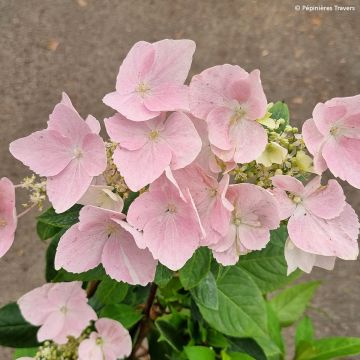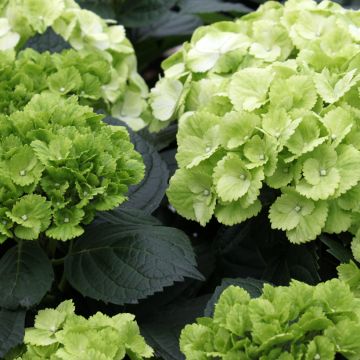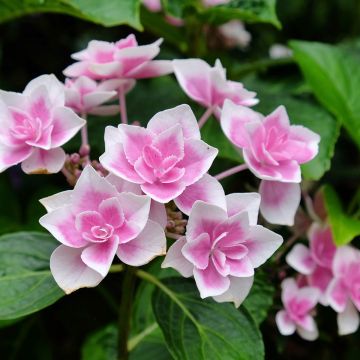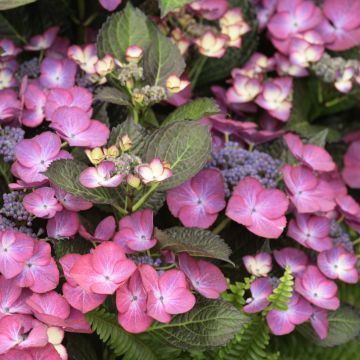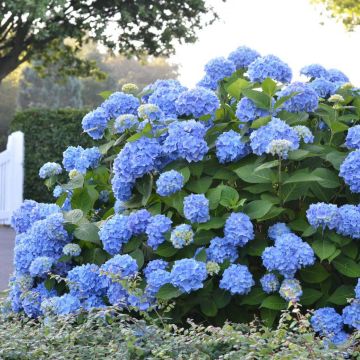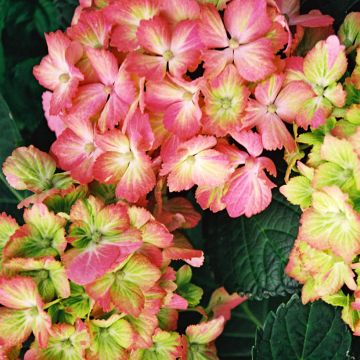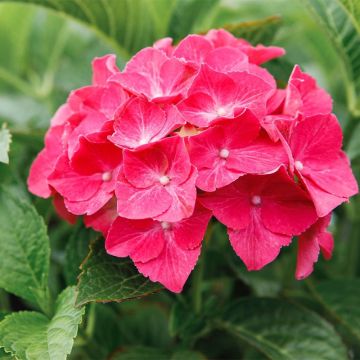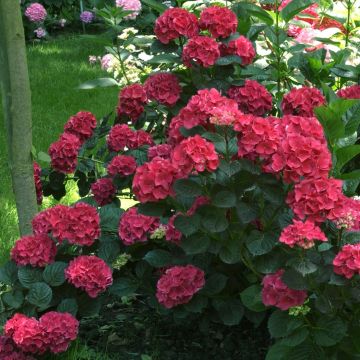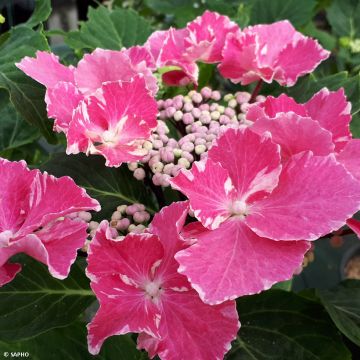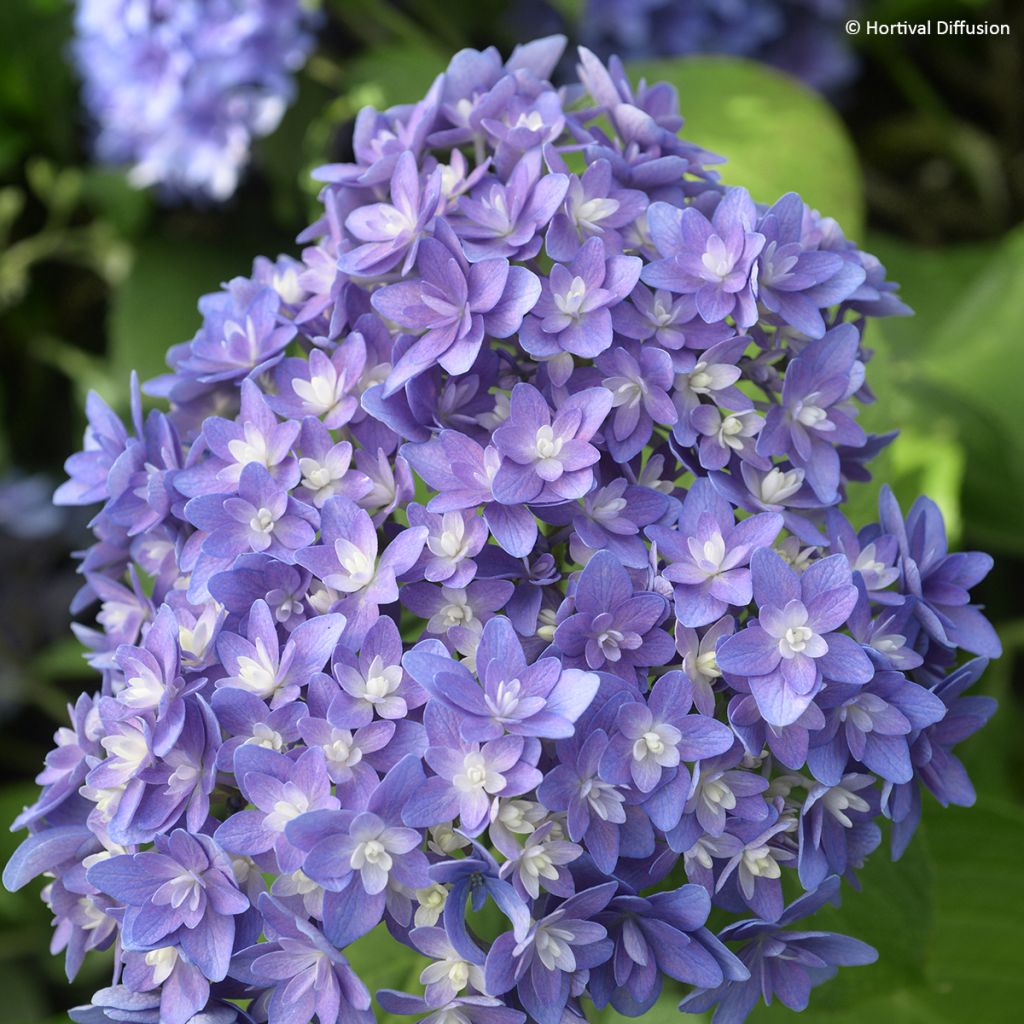

Hydrangea macrophylla Stellar Bleu
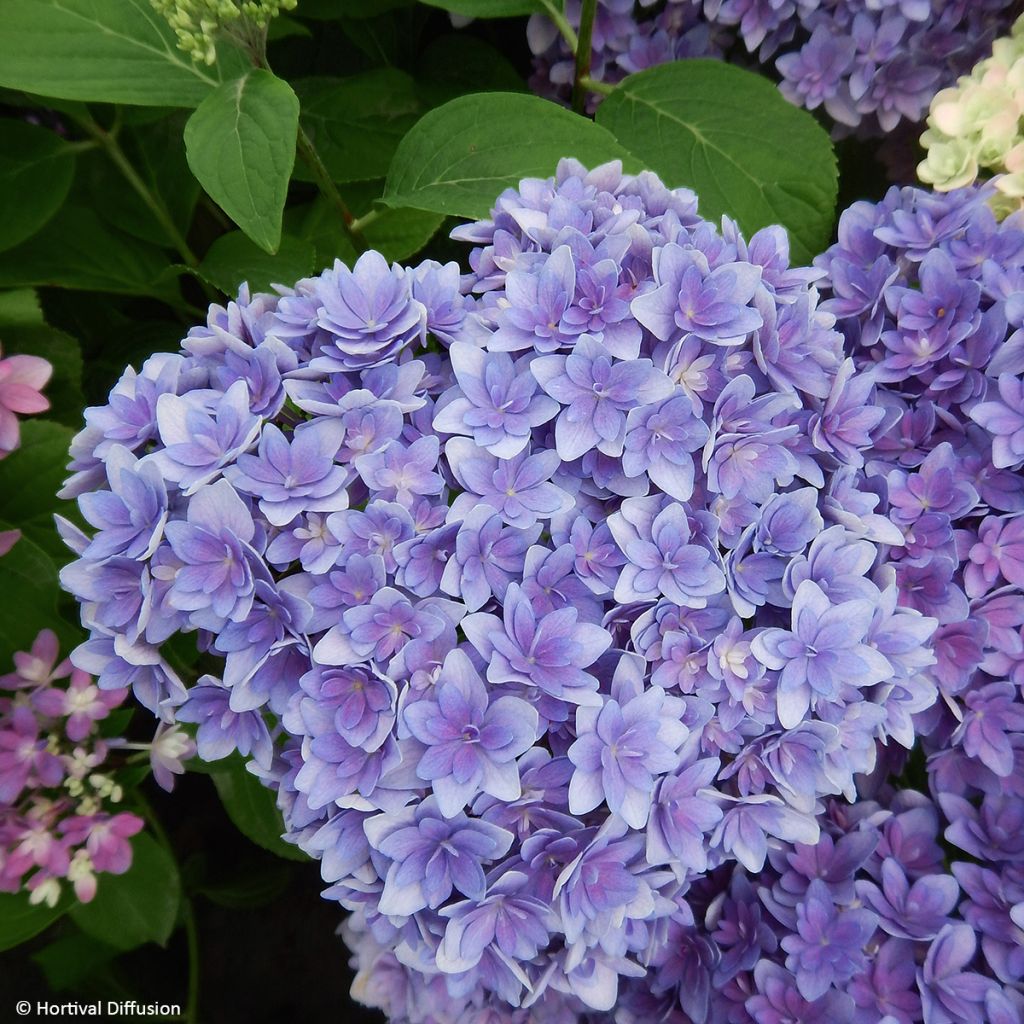

Hydrangea macrophylla Stellar Bleu
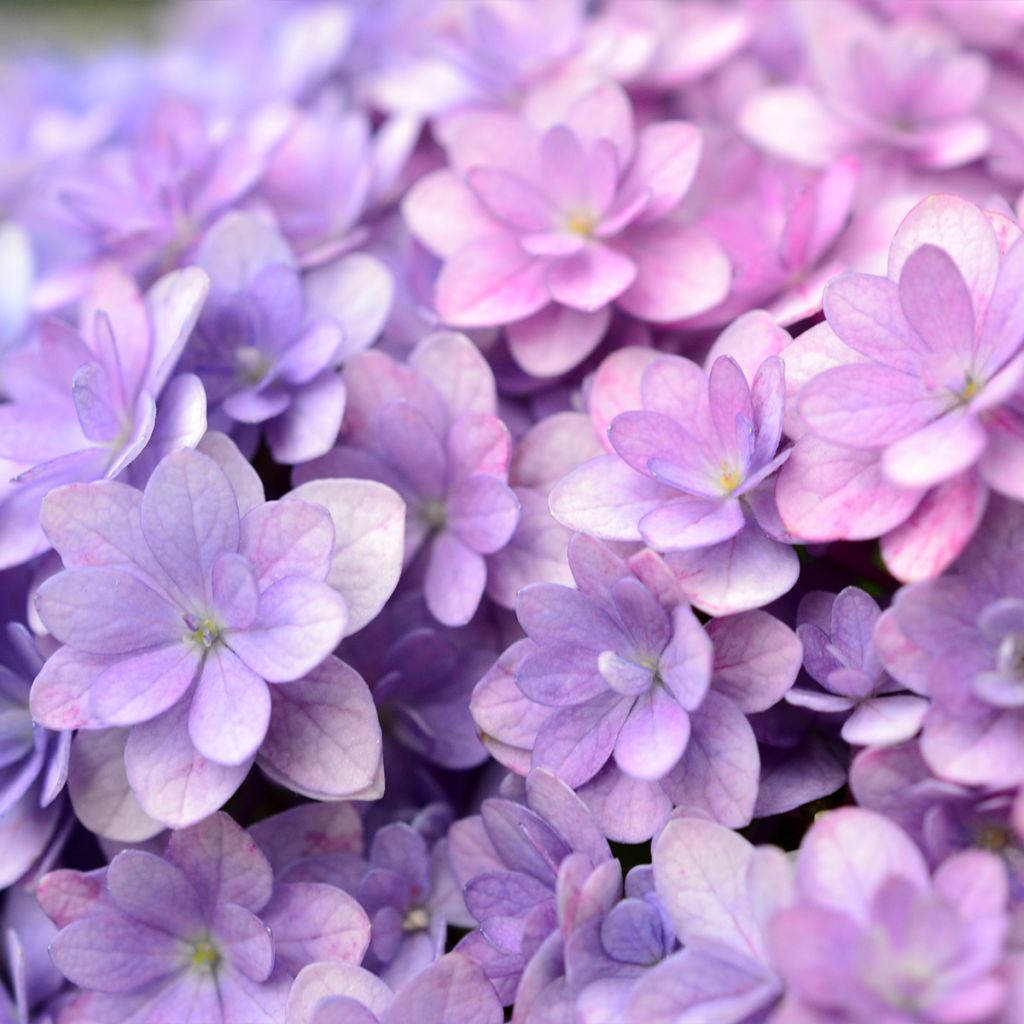

Hydrangea macrophylla Stellar Bleu
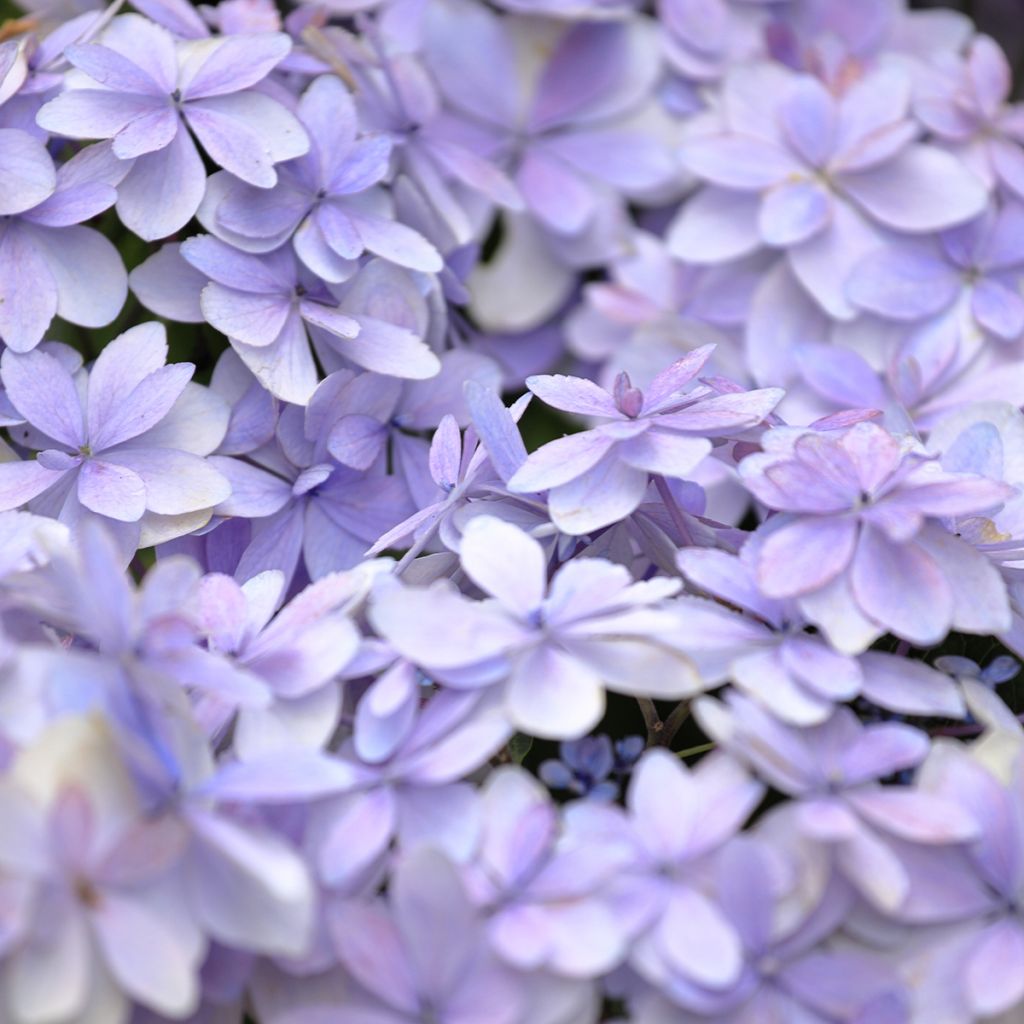

Hydrangea macrophylla Stellar Bleu
Hydrangea macrophylla Stellar Bleu
Hydrangea macrophylla Stellar Bleu
Bigleaf Hydrangea, French Hydrangea, Lacecap Hydrangea
I planted this hydrangea in heather soil to which I added a slow-release fertilizer specifically for acidophilous plants, a good amount of slate, and a bit of humus. It was planted in a pot on a northeast-facing terrace and watered exclusively with rainwater or demineralized water. Unfortunately, it only produced a few blue blooms, the rest being BRIGHT PINK! Very disappointed as I have never pampered a hydrangea so much...
Holly, 20/08/2024
Special offer!
Receive a €20 voucher for any order over €90 (excluding delivery costs, credit notes, and plastic-free options)!
1- Add your favorite plants to your cart.
2- Once you have reached €90, confirm your order (you can even choose the delivery date!).
3- As soon as your order is shipped, you will receive an email containing your voucher code, valid for 3 months (90 days).
Your voucher is unique and can only be used once, for any order with a minimum value of €20, excluding delivery costs.
Can be combined with other current offers, non-divisible and non-refundable.
Home or relay delivery (depending on size and destination)
Schedule delivery date,
and select date in basket
This plant carries a 24 months recovery warranty
More information
We guarantee the quality of our plants for a full growing cycle, and will replace at our expense any plant that fails to recover under normal climatic and planting conditions.
Would this plant suit my garden?
Set up your Plantfit profile →
Description
The Hydrangea macrophylla Stellar Blue is a variety of Hydrangea with original and charming flowering. The large inflorescences are composed of dozens of triple florets, blue and white in colour at the tip. In non-acidic soil, the colour of the flowers will be more pink. The visual effect is incredibly romantic and will allow for very beautiful compositions in the garden. Of medium size, this Hydrangea will form a more or less spherical bush and can be grown in a container to decorate a terrace. Hardy, it is best placed in a shady position, in neutral to acidic soil.
The Hydrangea macrophylla is a deciduous bush, native to Japan, where its beauty has been appreciated for centuries and mentioned in poems dating back to the 8th century! In this country that attaches great importance to plants, festivals are even dedicated to this bush. This Hydrangea is a variety obtained by Japanese breeder Toyokazu Ichie, who has more than a dozen hybrids to his credit since 2010. The full name of this bush with the plant breeders' rights (PBR) certificate also reveals its origin: Hydrangea macrophylla STELLAR (R) BLUE 'Kamosere Gokigenyo' PBR.
The main attraction of this variety lies in the dome-shaped inflorescences, 20 cm (7.9 in) or more in diameter, which display a beautiful blue colour in acidic soil. In slightly alkaline soil, they turn pink, which is typical for this species. The uniqueness of Stellar Blue lies in the triple florets, composed of small increasing size stars, imbricated, with whitish tips during development. The overall effect is quite charming. This flowering has the added benefit of being perpetual, so the bush displays flowers throughout the summer, from July to September. Afterwards, dried bouquets can be enjoyed indoors for a few more weeks. A medium-sized bush, about 1.20 to 1.50 m (3 ft 11 in to 4 ft 11 in) in all directions, this Hydrangea, like all H. macrophylla, is not strictly a ericaceous plant, but prefers neutral to acidic soils rich in humus. These types of soils will ensure the best blue colouration of the flowers. It is very hardy (-20°C or colder, although severe frosts can damage the tips of the branches, they easily regenerate after pruning in spring). Easy to grow, it can live for a very long time.
The Stellar Blue Hydrangea, a classic in romantic flower beds, is a generous plant that will make a big impact in open ground as well as in containers on a terrace or balcony. To maintain a poetic atmosphere, pair it with plants such as the 'Belle Etoile' Mock Orange with its simple white flowers, the touching 'Versicolor' Autumn Camellia whose flowering from October to December follows that of Stellar Blue, or even the 'Waterlily' Star Magnolia with its graceful double flowers of pure white that herald the beginning of spring.
Note: The colour of the flowers of Hydrangea macrophylla varies depending on the soil pH. Traditionally blue varieties turn pink in neutral or alkaline soil. To maintain a beautiful blue colour, mix heath soil or blonde peat into your garden soil and apply aluminum sulfate (slate contains it) or alum every spring.
Report an error about the product description
Hydrangea macrophylla Stellar Bleu in pictures


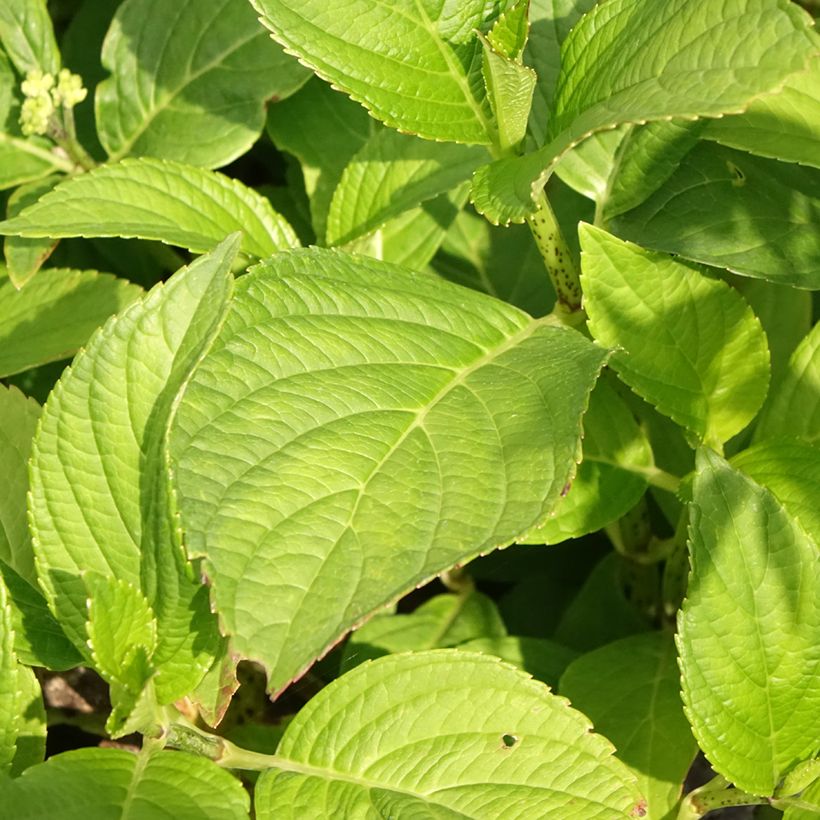

Plant habit
Flowering
Foliage
Botanical data
Hydrangea
macrophylla
Stellar Bleu
Hydrangeaceae
Bigleaf Hydrangea, French Hydrangea, Lacecap Hydrangea
Cultivar or hybrid
Other Hydrangea Macrophylla
View all →Planting and care
Plant the compound hydrangea macrophylla Stellar Blue in spring or early autumn, preferably in a slightly shaded location, for example against an east-facing wall, or even north-facing. In very cold regions, it may be prudent to protect its stump with a thick mulch. Keep it sheltered from cold and drying winds. It does not necessarily require acidic soil, but appreciates a deep, moist, well-drained, and fairly fertile soil. In poor soil, enrich with a good base fertilizer before planting and mix the existing soil with a substrate containing some compost.
If the soil is dry at the base of the wall, place the plant at least 30-40 cm (11.8-15.7 in) away from the wall and incorporate a quantity of well-decomposed compost to better retain moisture in the soil. After planting, be careful of slugs, which are quite fond of young leaves. Very hardy, it can be planted in cold regions without worry. Water regularly during hot periods to prevent the foliage from wilting during dry spells.
Planting period
Intended location
Care
-
, onOrder confirmed
Reply from on Promesse de fleurs
Haven't found what you were looking for?
Hardiness is the lowest winter temperature a plant can endure without suffering serious damage or even dying. However, hardiness is affected by location (a sheltered area, such as a patio), protection (winter cover) and soil type (hardiness is improved by well-drained soil).

Photo Sharing Terms & Conditions
In order to encourage gardeners to interact and share their experiences, Promesse de fleurs offers various media enabling content to be uploaded onto its Site - in particular via the ‘Photo sharing’ module.
The User agrees to refrain from:
- Posting any content that is illegal, prejudicial, insulting, racist, inciteful to hatred, revisionist, contrary to public decency, that infringes on privacy or on the privacy rights of third parties, in particular the publicity rights of persons and goods, intellectual property rights, or the right to privacy.
- Submitting content on behalf of a third party;
- Impersonate the identity of a third party and/or publish any personal information about a third party;
In general, the User undertakes to refrain from any unethical behaviour.
All Content (in particular text, comments, files, images, photos, videos, creative works, etc.), which may be subject to property or intellectual property rights, image or other private rights, shall remain the property of the User, subject to the limited rights granted by the terms of the licence granted by Promesse de fleurs as stated below. Users are at liberty to publish or not to publish such Content on the Site, notably via the ‘Photo Sharing’ facility, and accept that this Content shall be made public and freely accessible, notably on the Internet.
Users further acknowledge, undertake to have ,and guarantee that they hold all necessary rights and permissions to publish such material on the Site, in particular with regard to the legislation in force pertaining to any privacy, property, intellectual property, image, or contractual rights, or rights of any other nature. By publishing such Content on the Site, Users acknowledge accepting full liability as publishers of the Content within the meaning of the law, and grant Promesse de fleurs, free of charge, an inclusive, worldwide licence for the said Content for the entire duration of its publication, including all reproduction, representation, up/downloading, displaying, performing, transmission, and storage rights.
Users also grant permission for their name to be linked to the Content and accept that this link may not always be made available.
By engaging in posting material, Users consent to their Content becoming automatically accessible on the Internet, in particular on other sites and/or blogs and/or web pages of the Promesse de fleurs site, including in particular social pages and the Promesse de fleurs catalogue.
Users may secure the removal of entrusted content free of charge by issuing a simple request via our contact form.
The flowering period indicated on our website applies to countries and regions located in USDA zone 8 (France, the United Kingdom, Ireland, the Netherlands, etc.)
It will vary according to where you live:
- In zones 9 to 10 (Italy, Spain, Greece, etc.), flowering will occur about 2 to 4 weeks earlier.
- In zones 6 to 7 (Germany, Poland, Slovenia, and lower mountainous regions), flowering will be delayed by 2 to 3 weeks.
- In zone 5 (Central Europe, Scandinavia), blooming will be delayed by 3 to 5 weeks.
In temperate climates, pruning of spring-flowering shrubs (forsythia, spireas, etc.) should be done just after flowering.
Pruning of summer-flowering shrubs (Indian Lilac, Perovskia, etc.) can be done in winter or spring.
In cold regions as well as with frost-sensitive plants, avoid pruning too early when severe frosts may still occur.
The planting period indicated on our website applies to countries and regions located in USDA zone 8 (France, United Kingdom, Ireland, Netherlands).
It will vary according to where you live:
- In Mediterranean zones (Marseille, Madrid, Milan, etc.), autumn and winter are the best planting periods.
- In continental zones (Strasbourg, Munich, Vienna, etc.), delay planting by 2 to 3 weeks in spring and bring it forward by 2 to 4 weeks in autumn.
- In mountainous regions (the Alps, Pyrenees, Carpathians, etc.), it is best to plant in late spring (May-June) or late summer (August-September).
The harvesting period indicated on our website applies to countries and regions in USDA zone 8 (France, England, Ireland, the Netherlands).
In colder areas (Scandinavia, Poland, Austria...) fruit and vegetable harvests are likely to be delayed by 3-4 weeks.
In warmer areas (Italy, Spain, Greece, etc.), harvesting will probably take place earlier, depending on weather conditions.
The sowing periods indicated on our website apply to countries and regions within USDA Zone 8 (France, UK, Ireland, Netherlands).
In colder areas (Scandinavia, Poland, Austria...), delay any outdoor sowing by 3-4 weeks, or sow under glass.
In warmer climes (Italy, Spain, Greece, etc.), bring outdoor sowing forward by a few weeks.






























